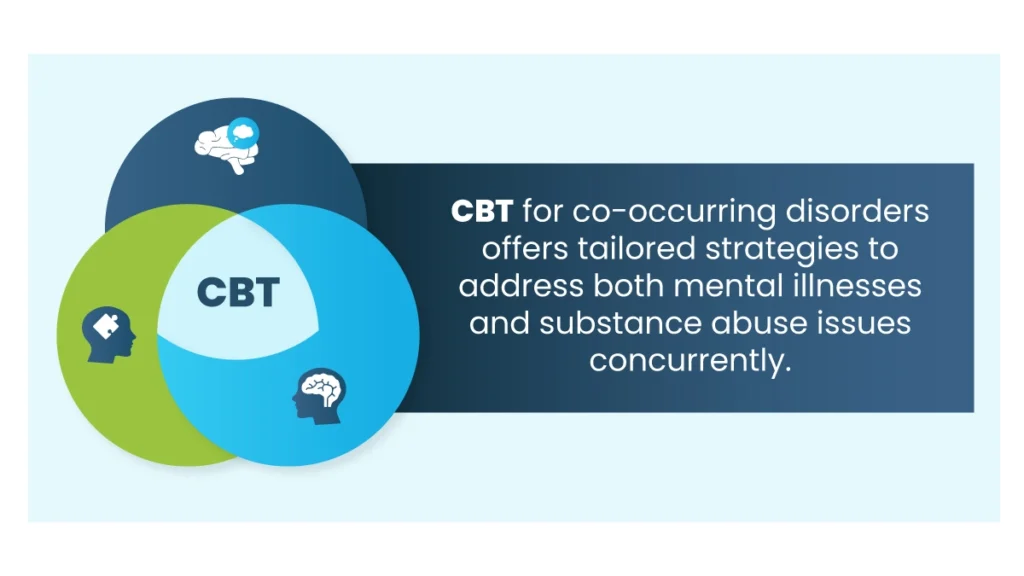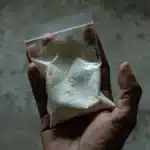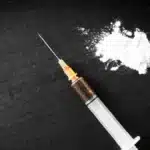Living with co-occurring disorders, where individuals simultaneously experience a mental health condition alongside substance addiction, presents unique challenges. Fortunately, cognitive behavioral therapy (CBT) offers a comprehensive and effective approach to addressing these intertwined issues.
Keep reading as we delve into CBT’s application in managing co-occurring disorders, exploring its components and benefits.
Key Takeaways
Treating co-occurring disorders requires comprehensive treatment approaches, with one being cognitive-behavioral therapy (CBT). This article covers:
- CBT, a talk therapy, focuses on altering negative thought patterns and behaviors associated with co-occurring disorders.
- The components of CBT form the framework for a comprehensive and integrated approach to managing co-occurring disorders.
- Utilizing CBT in conjunction with other treatments provides diverse tools to improve the chances of sustained recovery.
Contact The Haven Detox-Little Rock at (501) 271-3342 to start your journey toward recovery with our comprehensive, effective treatment programs.

Understanding Co-Occurring Disorders
Co-occurring disorders, or dual diagnosis, refer to the existence of both a mental disorder and a substance use disorder (SUD) simultaneously. This means someone might be struggling with conditions like depression, anxiety, or schizophrenia alongside addiction to substances like alcohol or drugs.
These disorders often influence each other, creating complex challenges for individuals. For instance, someone with depression might turn to alcohol to self-medicate, which can exacerbate their depression in the long run. Similarly, substance abuse can trigger or worsen symptoms of mental health disorders.
The interplay of these disorders can lead to various issues, like poorer treatment outcomes, increased risk of relapse, and a higher likelihood of experiencing severe psychological distress. In addition, individuals may face challenges in daily functioning, relationships, work, and overall quality of life.
Integrated treatments that address both the mental health and substance use components simultaneously are vital for effective management. It often involves a combination of proven therapies like cognitive-behavioral therapy (CBT), medication management, support groups, and holistic approaches.
What Is Cognitive-Behavioral Therapy (CBT)?
Cognitive-behavioral therapy (CBT), a type of psychotherapy, helps individuals identify and change negative thought patterns and behaviors. It is built on the idea that our thoughts, feelings, and actions are interconnected, and by changing one, we can positively impact others.
In CBT sessions, qualified therapists work with clients to identify harmful thought patterns and beliefs that contribute to their difficulties. Then, they teach practical techniques to challenge and reframe these negative thoughts, replacing them with more realistic and adaptive ones.
This type of therapy emphasizes collaboration between the therapist and client, with a focus on setting specific goals and developing strategies to achieve them. Techniques commonly used in CBT include cognitive restructuring, behavior modification, and problem-solving skills training.
Research has shown that CBT is highly effective in treating co-occurring disorders. By addressing both the underlying cognitive and behavioral aspects of mental health and substance use, CBT can aid individuals in developing coping skills, improve emotional regulation, and lessen the risk of relapse.
Core Components Of CBT For Co-Occurring Disorders
CBT for co-occurring disorders incorporates various components aimed at addressing the complex interplay between mental health and drug abuse issues. Let’s explore them:
Assessment
Assessment involves gathering comprehensive information about an individual’s history, symptoms, strengths, and challenges. This process allows therapists to develop a clear understanding of the factors contributing to the co-occurring disorders and tailor treatment strategies accordingly.
Psychoeducation
Psychoeducation is about providing individuals with information about their co-occurring disorders, including symptoms, triggers, and treatment options. This helps individuals gain insight into their conditions and empowers them to participate actively in their recovery process.
Functional Analysis
Functional analysis aims to identify the functional relationship between thoughts, feelings, behaviors, and environmental factors. By examining patterns of behavior and their consequences, people can gain insight into the underlying mechanisms driving their co-occurring disorders.
Cognitive Restructuring
Cognitive restructuring focuses on challenging and altering negative or slanted thought patterns that contribute to emotional distress or maladaptive behaviors. Individuals learn to develop more balanced, realistic thinking patterns through guided questioning and evidence-based techniques.
Behavioral Interventions
Behavioral interventions aim to modify maladaptive behaviors associated with co-occurring disorders. Techniques like exposure therapy, behavioral activation, and contingency management (CM) are used to promote healthier coping strategies and reduce reliance on substances.
Skills Training
Skills training involves teaching individuals practical skills to cope with cravings, manage stress, and navigate challenging situations without resorting to substance use. These skills may include assertiveness training, problem-solving skills, and relaxation techniques.
Relapse Prevention
Relapse prevention strategies focus on identifying early warning signs of relapse and developing coping strategies to prevent a recurrence. By recognizing triggers and implementing effective coping skills, individuals can maintain their recovery and avoid returning to harmful behavior patterns.
These CBT components form the framework for a comprehensive and integrated approach to addressing co-occurring disorders and leading a happy life.
Benefits Of CBT For Co-Occurring Disorders
CBT brings about a range of benefits for individuals grappling with co-occurring disorders. Here’s the breakdown of these benefits:
Improved Symptom Management
One of the primary benefits of CBT for co-occurring disorders is improved symptom management. By targeting the root cognitive and behavioral factors contributing to both conditions, CBT helps individuals gain better control over their symptoms and reduces their severity.
Skill Development
CBT facilitates skill development by teaching practical coping strategies and problem-solving techniques. Through structured exercises and homework assignments, individuals learn to implement these skills in their everyday lives, enhancing their ability to manage stressors and triggers effectively.
Enhanced Coping Strategies
Through CBT, individuals acquire a toolkit of coping skills and strategies to navigate challenging situations. These skills include emotion regulation, problem-solving, communication, and stress management, empowering individuals to cope effectively with life’s ups and downs.
Reduction In Relapse Rates
CBT has been shown to cut relapse rates in individuals with co-occurring disorders significantly. By addressing underlying triggers and teaching relapse prevention strategies, CBT helps individuals maintain their sobriety and mental wellness over the long term.
Increased Self-awareness
CBT promotes self-reflection and self-awareness, allowing individuals to gain deeper insight into their thoughts, feelings, and behaviors. This heightened awareness fosters a greater sense of agency and control over one’s life, leading to more intentional decision-making and behavior change.
Empowerment
CBT empowers individuals to take an active part in their addiction and mental health recovery journey. By providing them with tools and strategies to manage their conditions, CBT fosters a sense of agency and self-efficacy, empowering individuals to make positive changes in their lives.
Long-Term Outcomes
The benefits of CBT extend beyond the completion of therapy, leading to long-term improvements in overall functioning and quality of life. By equipping individuals with skills to navigate ongoing challenges, CBT sets the stage for sustained recovery and well-being.
In short, CBT for co-occurring disorders can yield significant positive outcomes and promote lasting recovery for individuals facing these complex challenges.
Integrating CBT With Other Treatment Modalities
When treating dual diagnosis, combining CBT with other methods can improve outcomes. Let’s explore how different approaches complement CBT.
Pharmacotherapy
Pharmacotherapy, or medication management, is often a crucial component of treatment for dual diagnosis. When combined with CBT, medications can help alleviate symptoms of co-occurring disorders and facilitate engagement in therapy by stabilizing mood and reducing cravings.
Motivational Interviewing (MI)
Motivational interviewing (MI) is a collaborative, goal-oriented approach that assists individuals in exploring and resolving ambivalence about change. When combined with CBT, MI can enhance motivation for treatment and support individuals in making lasting behavioral changes.
Mindfulness-Based Interventions
Mindfulness practices, like meditation and breathing exercises, promote awareness of thoughts and feelings without judgment. When combined with CBT, mindfulness helps clients recognize triggers and manage stress, enhancing the effectiveness of CBT techniques.
Family Therapy
Involving family members in therapy sessions can strengthen support systems and improve communication. By integrating family therapy with CBT, patients receive additional support and learn healthier ways to interact with loved ones, contributing to overall recovery.
Holistic Approaches
Holistic approaches encompass various complementary therapies, such as yoga, art therapy, and nutrition counseling. Combined with CBT, these interventions promote overall well-being, addressing physical, emotional, and spiritual aspects of recovery.
By combining these modalities, individuals can access diverse tools and support systems, enhancing their chances of sustained recovery.
Frequently Asked Questions (FAQs)
How does CBT help with co-occurring disorders?
CBT, short for cognitive behavioral therapy, is effective for co-occurring disorders by targeting negative thought patterns and behaviors. It helps individuals recognize and change harmful thoughts and actions, which can improve symptoms of both disorders.
By teaching coping skills and problem-solving techniques, CBT equips people to manage stress and triggers related to their conditions. This approach fosters resilience and empowers individuals to lead healthier, more balanced lives despite dealing with multiple disorders.
What types of disorders are best treated by CBT?
CBT is an effective way of treating a variety of mental health disorders. These include anxiety disorders, like generalized anxiety and panic attacks, and mood disorders, such as depression and bipolar disorder. It’s also helpful in treating phobias, PTSD, and OCD.
Additionally, CBT helps with substance abuse disorders, eating disorders, insomnia, and certain personality disorders. By focusing on altering negative thought patterns and behaviors, CBT helps improve symptoms and overall well-being.
Can CBT be used to treat both substance use disorders and mental health conditions simultaneously?
Cognitive behavioral therapy (CBT) can treat substance use disorders and mental health conditions together. CBT helps people identify and change negative thought patterns and behaviors related to both substance use and mental health problems.
By addressing these issues simultaneously, CBT assists in developing coping strategies, improving mood, and reducing substance cravings, leading to better overall well-being. This integrated approach enhances recovery outcomes and promotes long-term stability.
Discover Renewal At The Haven Detox-Little Rock
If you’re battling substance addiction or mental health issues, know that you’re not alone. At The Haven Detox-Little Rock, our team is here to extend a helping hand and guide you toward a brighter tomorrow.
We begin addiction treatment with our medical detox program, helping your body to rid itself of harmful toxins. From there, our residential rehab program provides intensive care 24/7, ensuring you receive the support and treatment you need at every step.
For those with mental illnesses, we offer a comprehensive range of mental health treatment services. They are comprised of therapies, medication management, and holistic approaches designed to address your unique challenges and promote lasting well-being.
Don’t wait to take the first step towards healing. Contact us now at (501) 271-3342 to learn more about how we can support you on your journey to recovery.




